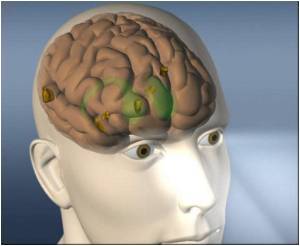Energy drinks and junk food consumption is increasing among teens and is affecting their brain development leading to learning and memory problems.
Highlights
- High consumption of energy drinks and junk food can affect brain development in teens
- Adolescents exposed to high taurine levels can lead to adverse effects on learning and memory
- Exercise intervention can help prevent long-term effects of adverse exposures in teens
The research team at Northern Kentucky University was headed by a lead author Christine Curran, Ph.D., and her co-author Cecile Marczinski, Ph.D.
Effects of High Consumption of Energy Drinks
Energy drink consumption often mixed with alcohol is increasing among teens. It is not only increasing in teens, but also in animal studies affecting their brain development said Dr. Curran.
"Our review indicates that we don't know enough about the effects of high consumption of energy drinks and the ingredients found in them at this critical time in mammalian brain development," she said.
Another review that was included in the special issue had examined junk food and results showed that these foods were highly palatable and rewarding, but had poor nutritional quality.
Amy Reichelt, Ph.D., at RMIT University in Melbourne, Australia, and lead author said that junk food is bad for waistlines and also was found to be worst for the teen brain.
"Because key neurotransmitter systems in the brain responsible for inhibition and reward signaling are still developing during the teen years, existing primarily on junk food could negatively affect decision making, increase reward-seeking behavior and influence poor eating habits throughout adulthood," said Dr. Reichelt.
However, exercise could help teens from being exposed to certain diseases, explained Michiko Watanabe, Ph.D., co-editor of the special Birth Defects Research issue.
According to two other reviews that were included in the issue, "Exercise, Cognition, and the Adolescent Brain" and "The Neurobiology of Substance Use on the Adolescent Brain and Putative Therapeutic Effects of Exercise," revealed that exercise intervention could help prevent long-term effects of adverse exposures in teens. However, the majority of teens were found to be not involved in any form of exercise.
"The long list of exercise benefits could motivate teens to get off the sofa," Dr. Watanabe added.
Junk Foods
Junk food and fast food addiction is a growing cause for concern, and it’s a crisis that cannot be addressed until we recognize and acknowledge the problem, just as we would to overcome addiction to an illegal drug like heroin or cocaine.
Fatty and unhealthy foods are popular, especially with young children and adolescents. They are often the cheapest and most convenient eating option. Unfortunately, junk food can potentially damage the immature brain when consumed over an extended period as the young brain matures.
High-fat foods affect the prefrontal cortex which is responsible for the executive functions of the human brain: it looks after memory, planning, attention, impulse control and social behavior.
Food addiction in youth is a major cause for concern because it’s a problem that is contributing to the growing obesity epidemic and it greatly increases the risk of lifestyle diseases in young adults and the workforce of tomorrow. Teenagers are a lot more prone to risk-taking behavior and addiction, which is why so many teenagers succumb to drug addiction and also find it a lot harder to break out of.
Source-Medindia
















